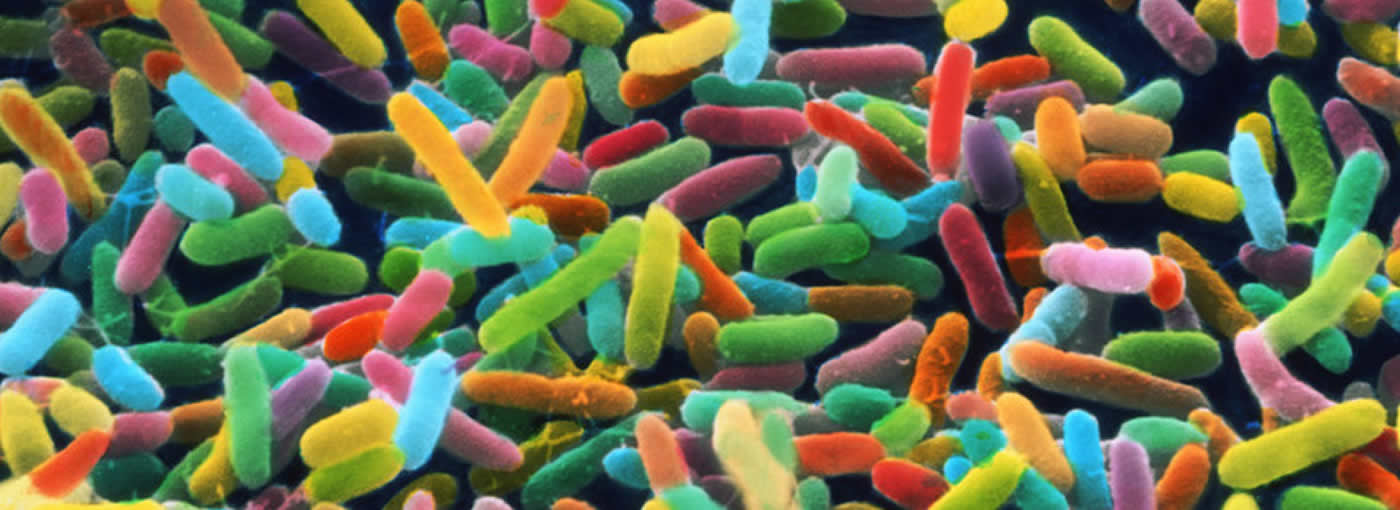Summary: Researchers report transgenic mice engineered to carry genes associated with ALS showed improved neuromuscualr function and lived longer after being exposed to butyrate.
Source: University of Illinois at Chicago.
A bacterial by-product known to be important in maintaining gut health may slow the progression of amyotrophic lateral sclerosis, or ALS – a progressive, neurodegenerative disease.
Researchers at the University of Illinois at Chicago College of Medicine report that in a mouse model of ALS, the compound butyrate helped correct a gut microbiome imbalance and reduced gut leakiness – both symptoms of ALS. The treated mice lived also longer compared to mice that weren’t given butyrate.
The finding is reported in Clinical Therapeutics.
ALS, also known as Lou Gehrig’s disease, slowly destroys the motor neurons that control movement. Patients gradually lose the ability to walk, speak and swallow — and eventually, to breathe. Conventional treatments include physical therapy and medications, but researchers have recently started looking to the gut as a new target for intervention.
“The brain and the gut are linked, so it’s not too surprising that the health of the gut can impact the functioning of neurons,” says Jun Sun, associate professor of gastroenterology and hepatology at UIC and corresponding author of the paper. In March, she and her coworkers were the first to identify a gut component to ALS progression.
The gut microbiome – the myriad bacteria, viruses and other microbes that make the gut their home – when in balance, helps maintain health, starting with the gut lining. Leaky gut in ALS may lead to increased inflammation. Reducing this gut-associated inflammation has been a goal of clinicians and researchers, and rebalancing the gut microbiome has shown promise in small-animal studies.

Sun and her colleagues studied transgenic mice that were engineered to carry human genes known to contribute to certain forms of ALS. The mice were found to have an abnormal microbiome, along with damaged junctions between the cells of the intestinal lining. Poorly functioning junctions can cause the tissue to become leaky, and have been found to be associated with the onset of ALS in humans.
When the researchers fed the ALS-prone mice butyrate in their water, starting when the mice were 35 to 42 days old, the mice showed a restored gut microbiome profile and improved gut integrity. Butyrate-treated mice also showed improved neuromuscular function and delayed onset of ALS symptoms. Treated mice showed symptoms at 150 days old compared to control mice at about 110 days. Treated mice also lived an average 38 days longer than mice not given butyrate.
“There is only one approved drug to treat ALS, so we need additional treatments,” Sun said. “Butyrate is a bacterial by-product, and already available over the counter as a supplement. Studies are needed to see its effects on ALS in humans, but our preliminary results in mice are very promising.”
Yongguo Zhang, Shaoping Wu, Yinglin Xia and Dapeng Jin of UIC and Jingsong Zhou and Jianxun Yi of the Kansas City University of Medicine and Bioscience are co-authors on the paper.
Funding: This research was funded in part by National Institutes of Health grants R01 DK105118, NIAMS R01 AR057404 and an ALS Association Research Award.
Source: Sharon Parmet – University of Illinois at Chicago
Image Source: NeuroscienceNews.com image is adapted from The Sociable Scientist.
Original Research: Abstract for “Target Intestinal Microbiota to Alleviate Disease Progression in Amyotrophic Lateral Sclerosis” by Yong-guo Zhang, Shaoping Wu, Jianxun Yi, Yinglin Xia, Dapeng Jin, Jingsong Zhou, and Jun Sun in Clinical Therapeutics. Published online January 24 2017 doi:10.1016/j.clinthera.2016.12.014
[cbtabs][cbtab title=”MLA”]University of Illinois at Chicago “Rebalancing Gut Microbiome Lengthens ALS Survival: Mouse Study.” NeuroscienceNews. NeuroscienceNews, 27 January 2017.
<https://neurosciencenews.com/als-microbiome-neurology-6020/>.[/cbtab][cbtab title=”APA”]University of Illinois at Chicago (2017, January 27). Rebalancing Gut Microbiome Lengthens ALS Survival: Mouse Study. NeuroscienceNew. Retrieved January 27, 2017 from https://neurosciencenews.com/als-microbiome-neurology-6020/[/cbtab][cbtab title=”Chicago”]University of Illinois at Chicago “Rebalancing Gut Microbiome Lengthens ALS Survival: Mouse Study.” https://neurosciencenews.com/als-microbiome-neurology-6020/ (accessed January 27, 2017).[/cbtab][/cbtabs]
Abstract
Target Intestinal Microbiota to Alleviate Disease Progression in Amyotrophic Lateral Sclerosis
Purpose
Emerging evidence has demonstrated that gut microbiome plays essential roles in the pathogenesis of human diseases in distal organs. Amyotrophic lateral sclerosis (ALS) is a fatal neurodegenerative disease characterized by the progressive loss of motor neurons. Treatment with the only drug approved by the US Food and Drug Administration for use in ALS, riluzole, extends a patient׳s life span by only a few months. Thus, there is an urgent need to develop novel interventions that for alleviate disease progression and improve quality of life in patients with ALS. Here we present evidence that intestinal dysfunction and dysbiosis may actively contribute to ALS pathophysiology.
Methods
We used G93A transgenic mice as a model of human ALS. The G93A mice show abnormal intestinal microbiome and damaged tight junctions before ALS disease onset. The mice were given 2% butyrate, a natural bacterial product, in the drinking water.
Results
In mice fed with butyrate, intestinal microbial homeostasis was restored, gut integrity was improved, and life span was prolonged compared with those in control mice. At the cellular level, abnormal Paneth cells—specialized intestinal epithelial cells that regulate the host–bacterial interactions—were significantly decreased in the ALS mice treated with butyrate. In both ALS mice and intestinal epithelial cells cultured from humans, butyrate treatment was associated with decreased aggregation of the G93A superoxide dismutase 1 mutated protein.
Implications
The findings from this study highlight the complex role of the gut microbiome and intestinal epithelium in the progression of ALS and present butyrate as a potential therapeutic reagent for restoring ALS-related dysbiosis.
“Target Intestinal Microbiota to Alleviate Disease Progression in Amyotrophic Lateral Sclerosis” by Yong-guo Zhang, Shaoping Wu, Jianxun Yi, Yinglin Xia, Dapeng Jin, Jingsong Zhou, and Jun Sun in Clinical Therapeutics. Published online January 24 2017 doi:10.1016/j.clinthera.2016.12.014






